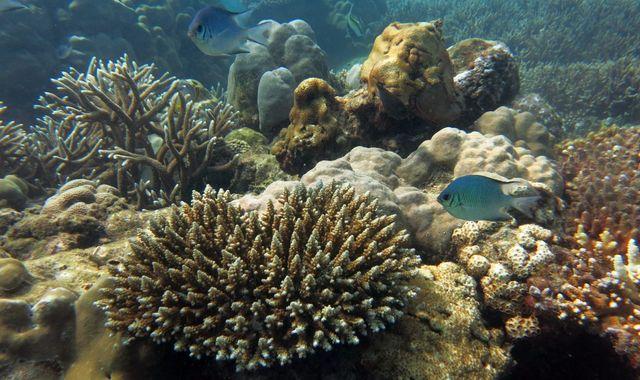A new study has found that bleached and damaged coral reefs can supply nutritious seafood.
A group of scientists who were led by Lancaster University, studied over 20 years of data from the Seychelles where tropical reefs were damaged by a large coral bleaching event in 1998.
The bleaching which was caused by rising sea temperatures was said to have killed 90% of the corals found on the islands.
The research which was published in One Earth found that damaged reef fisheries remain rich sources of micronutrients, even increasing in nutritional value for some minerals.
This is expected to bring hope to as many as six million people who work in small-scale fisheries and rely on tropical reefs. AThe fish they catch are vital to the health of millions of people in the tropics, which suffer from high levels of malnourishment.
Read also: Study links melting Arctic ice to U.S. fires
The scientists explained that bleaching turns the corals white and leaves them under stress and at risk of death. They were however unsure how climate change could affect the nutrients available from reef fisheries.
But their new findings revealed they may be more resilient than previously thought.
According to dr. James Robinson, who led the study, “the findings underline the continuing importance of these fisheries for vulnerable coastal communities, and the need to protect against overfishing to ensure the long-term sustainability of reef fisheries”.
He noted that they found that some micronutrient-rich reef species become more abundant after coral bleaching, enabling fisheries to supply nutritious food despite climate change impacts.
He called for the protection of these systems to be made a “priority”, cautioning that more understanding of the long-term impacts of climate change on coral reefs is still urgently needed.
